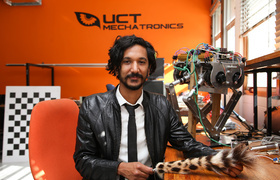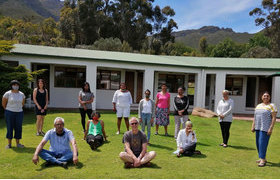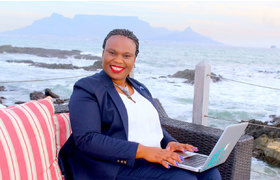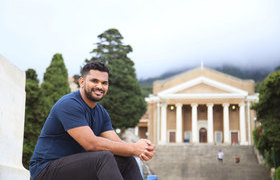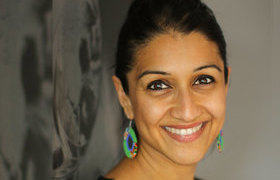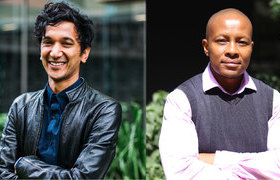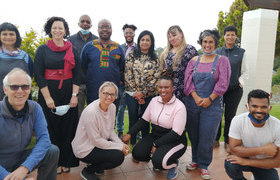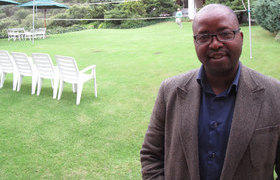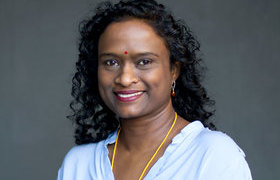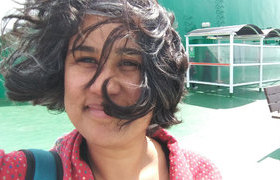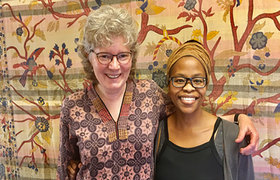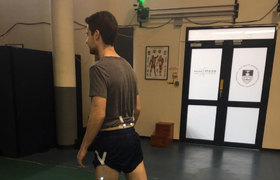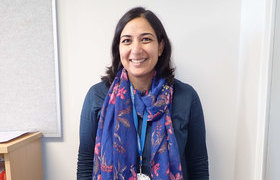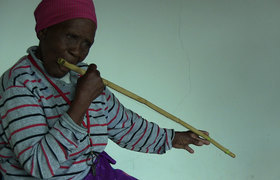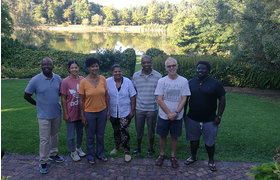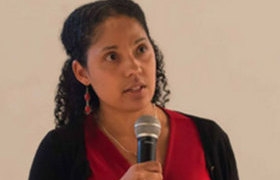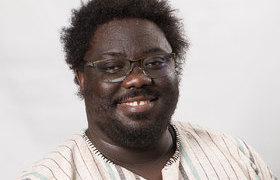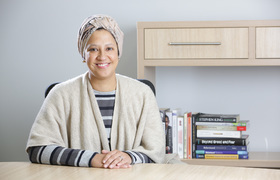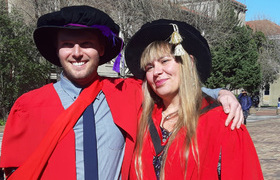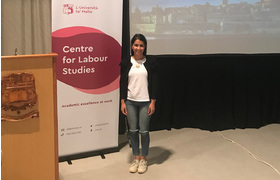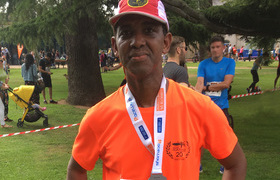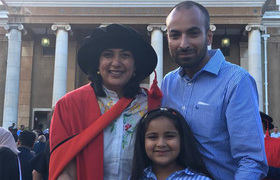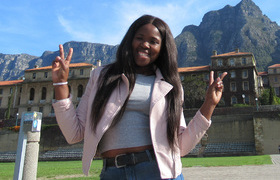Margaret Orr and the Academic Game
18 March 2016 | Story by Newsroom
How does one get ahead in a university where the rules of the game are often not clear? Margaret Orr, executive coach in the office of the vice-chancellor, gave a seminar to the Next Generation Professoriate on 10 March 2016 entitled “Academic Aspirations and other Games for Fun and Profit”.
Orr drew on her experience at Wits University where, among other projects, she pioneered the WonderWoman initiative (see graphic below). She worked with four cohorts of twenty women academic staff members with the goal of advancing them above the senior lecturer level which in the early 2000s was operating as a glass ceiling.
Women felt 'held back'. While they were working very hard, their failure to get promoted was explained in terms of a lack of research productivity. Relative to men, they were less research productive. In 2004 32% of women at Wits had PhDs compared to 53% of men and the production of publications amongst men was at a rate nearly twice that of women.
Orr and her sister (Dr Wendy Orr, then director of Transformation and Employment Equity at Wits) went in search of reasons for the lack of productivity. They found that male staff members received more mentoring, more funding and were more frequently invited to sit on editorial boards. Women tended to do more teaching (especially in big first and second year classes), more administrative and service work and were engaged in time-consuming pastoral work with students. They were more often involved in team research and 'soft' research which were less valued in the university. And they seemed not to know how to play the game.
The approach of the WonderWoman initiative was to provide individual support and skills while also seeking to change the game (university rules, processes and conventions) itself. The approach was pursued through a 'deliberate infiltration strategy' by which senior staff members were invited to support new approaches, were won over and then became supporters of the new ways.
Fifteen years later, Orr says that most of the members of the four cohorts of WonderWoman have broken through the glass ceiling and some have proceeded into the ranks of senior management. The work requires patience and energy and, from the cohort members, a willingness to 'pay it forward', to assist and support those following after them.
Biography:
Margaret Orr is a lapsed academic. In her past life she was a professor of English at UNISA, and director of the Centre for Learning, Teaching & Development at the University of the Witwatersrand. Currently she is on contract as full-time internal leadership coach in the vice-chancellor's office at the University of Cape Town. She has masterminded a number of donor-funded projects and interventions aimed at transformation of institutional culture, ranging from the methodical and strategic, to the subversive and irreverent. These include Growing Our Own Timber, WonderWoman, GlassBusters, the Frontiers Leadership Programme, Research Bootcamp, Project Fortification, and TimeOut Sabbaticals.
Her proudest achievements are the Margaret Orr Women's Empowerment Award (a scholarship scheme for young women students at UNISA); the WonderWoman Project at Wits and its by-product: Buttons & Breakfasts (Wits University Press 2006) – a storytelling project aimed at harnessing the power of stories and personal testimony in institutional transformation; and her three children, who are the most interesting people she knows.
 This work is licensed under a Creative Commons Attribution-NoDerivatives 4.0 International License.
This work is licensed under a Creative Commons Attribution-NoDerivatives 4.0 International License.
Please view the republishing articles page for more information.
Next Generation Professoriate (NGP)
The Next Generation Professoriate (NGP) is a mid-career academic staff development and support programme. Funded by the vice-chancellor’s Strategic Funds, the NGP addresses demographic inequalities in the academic hierarchy. The goal is to help members become associate and full professors.
The NGP was officially launched in September 2015. By the end of 2018, four of its members had been promoted to full professor and a further 14 had reached the rank of associate professor.
The programme is led by Dr Robert Morrell, who has over 35 years of academic experience in South African universities. He has a B1-rating from the the National Research Foundation (NRF) and is an elected member of the Academy of Sciences in South Africa.
Newsletters
In the news
